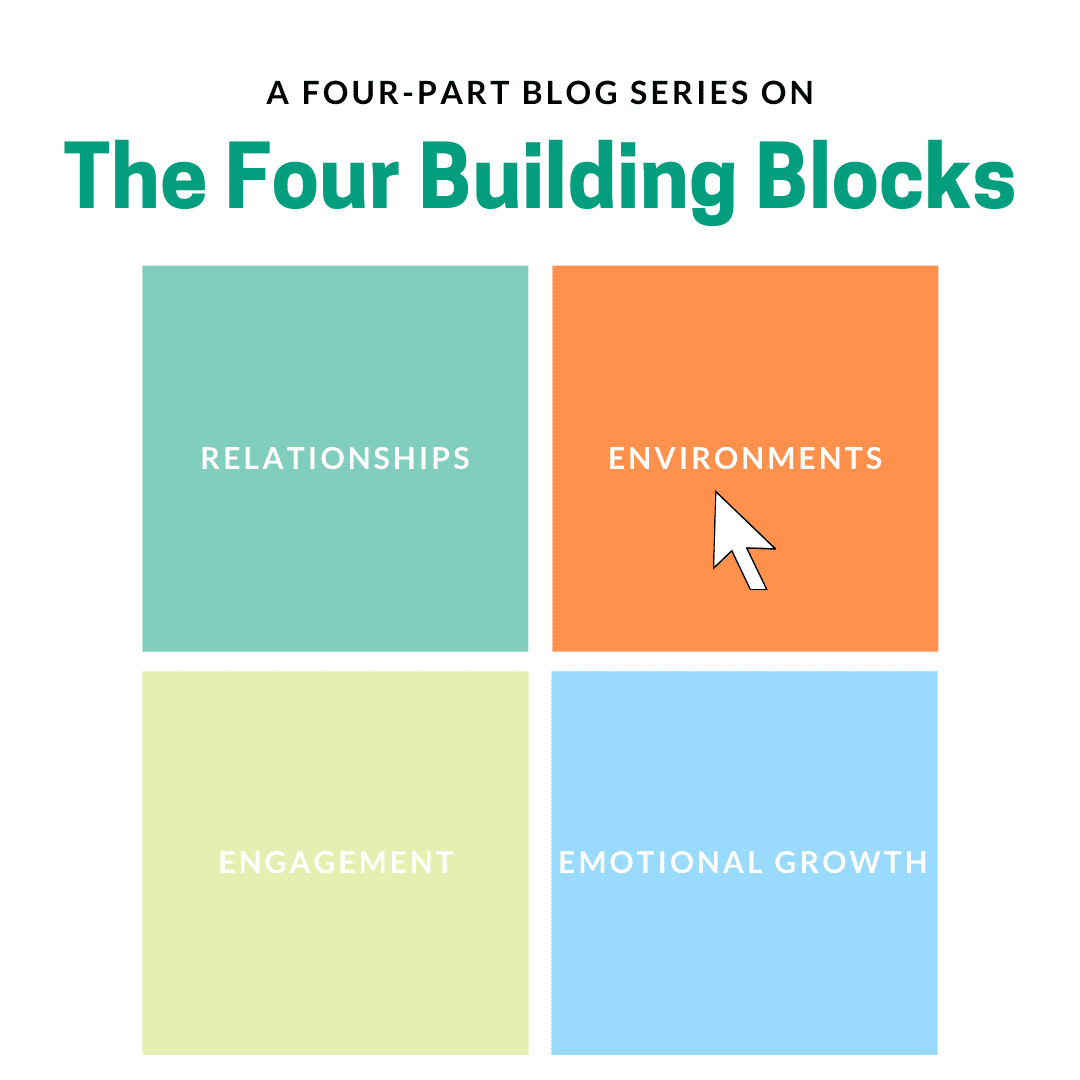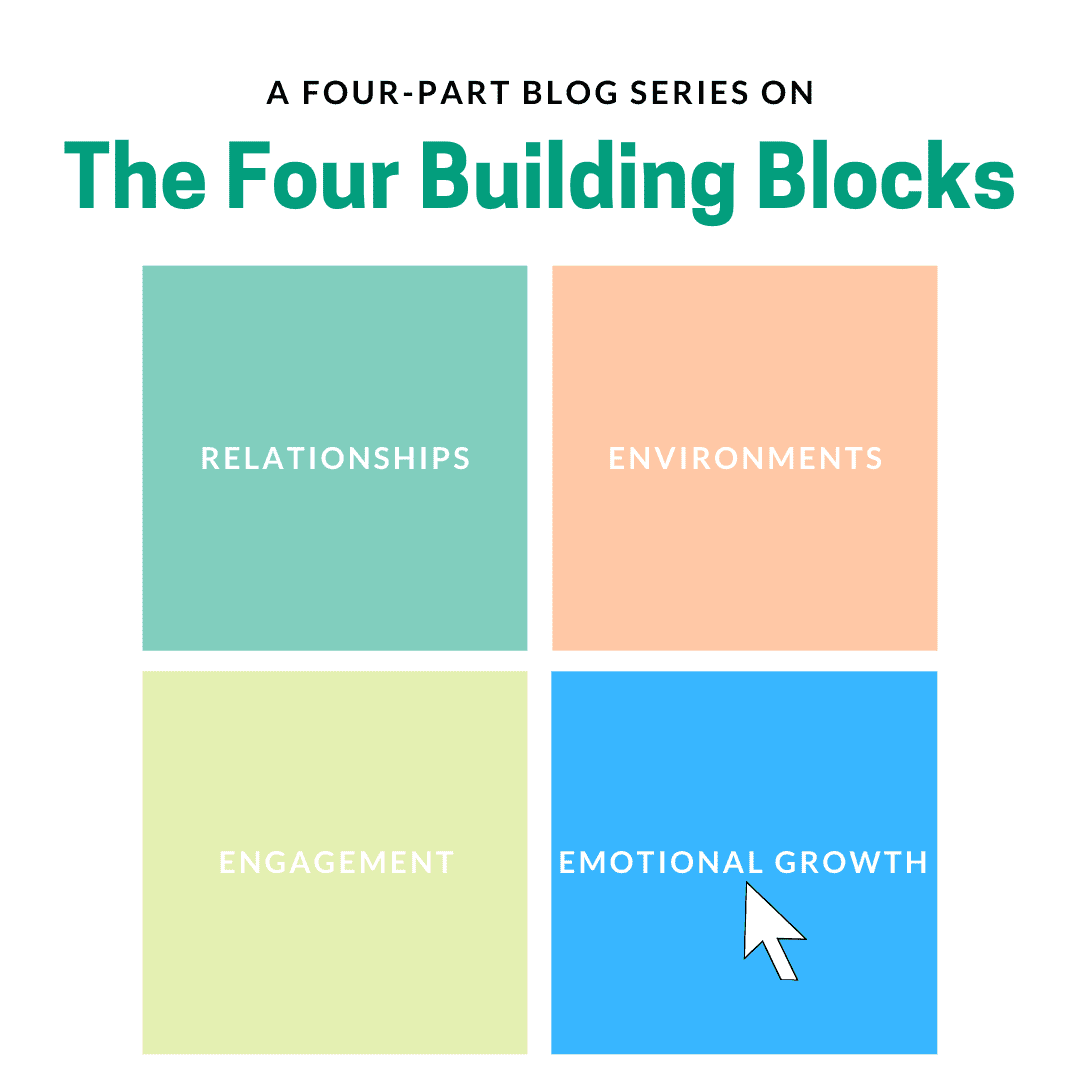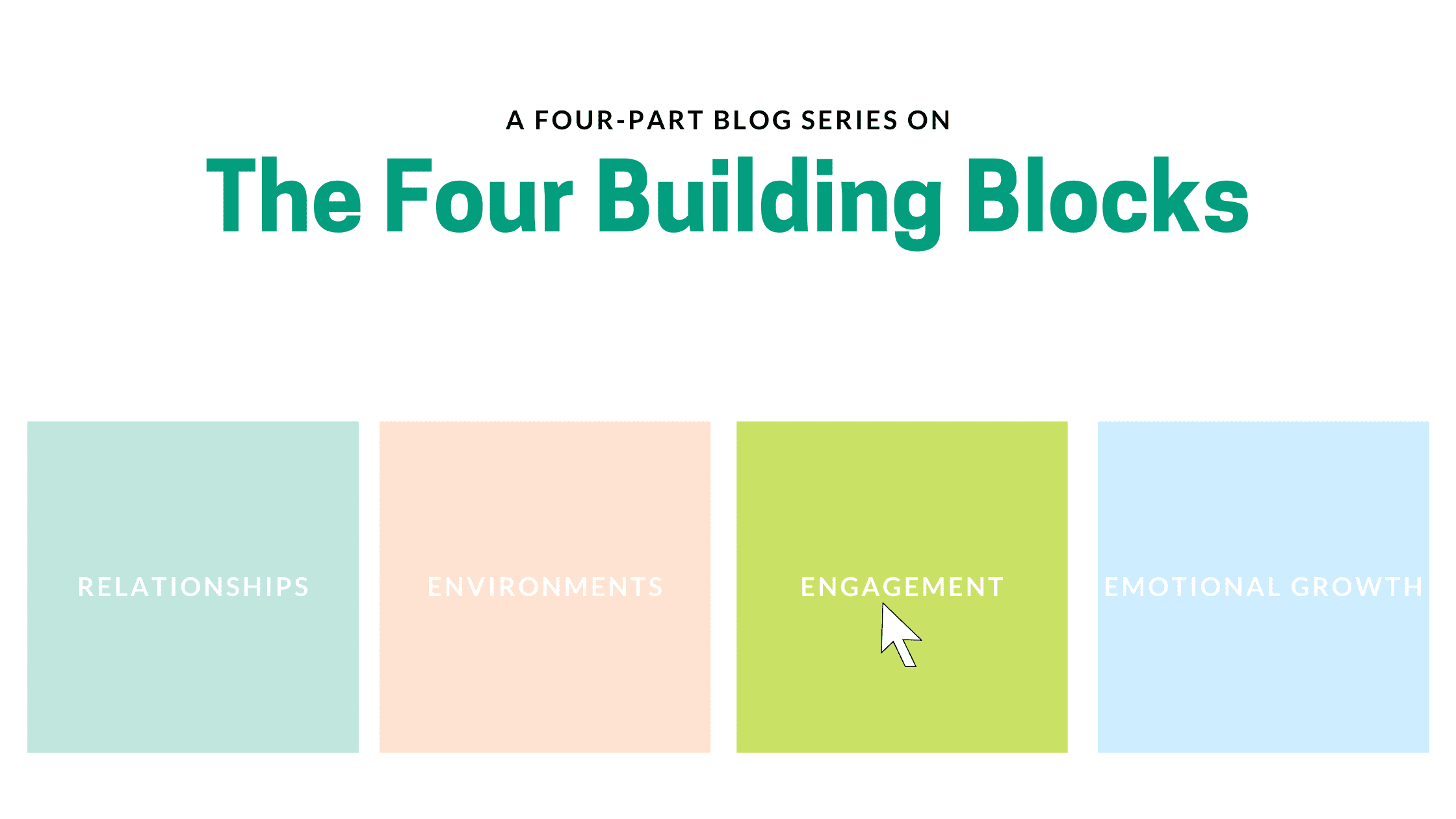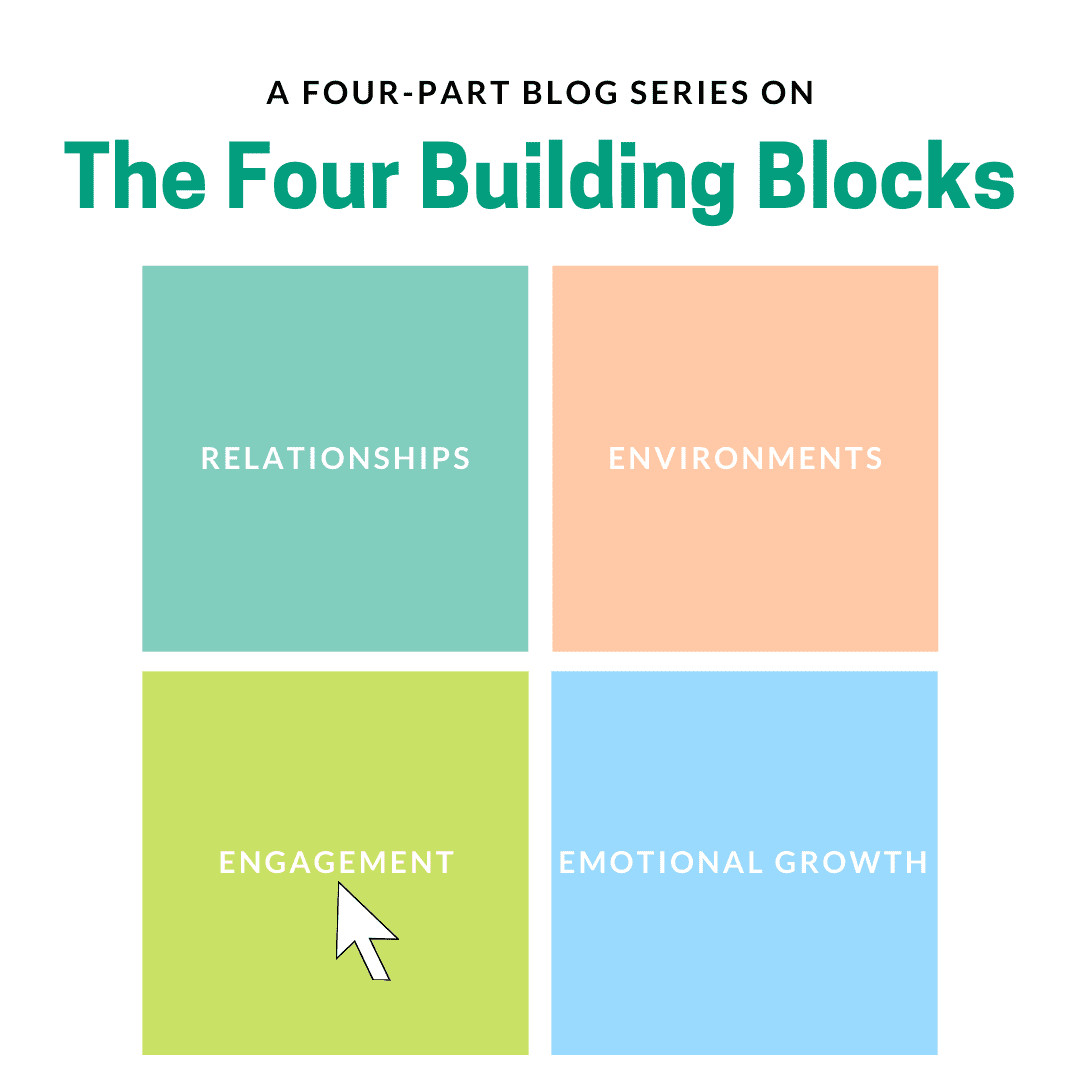


HOPE Series: Safe, Equitable, Stable Environments
June 16, 2021


HOPE Series: Emotional Growth
August 31, 2021In this third part of our four-part series on The Four Building Blocks of HOPE, we are going to discuss the importance engagement plays in developing a sense of belonging and connectedness.
Catch up on the entire series by following AAP-CA3’s blog: https://aapca3.org/category/
Part 1: Supporting Relationships
Part 2: Environments
Part 3: Engagement
Part 4: Emotional Growth

Engagement
Our little ones crave opportunities to feel as though they belong and have a contribution to offer the family unit or their social support system. “Involvement in social institutions and environments, awareness of cultural customs and traditions, and a cultivated ‘sense of mattering’ and belonging helps children develop into secure and resilient adults” (PositiveExperiences.org). Here’s how families/caregivers and educators can promote social and civic engagement for our kids:
Parents/Caregivers: How to promote engagement
A sense of mattering and belonging for children is important within the family structure, especially when it comes to a sibling dynamic. Giving kids certain age-appropriate tasks or “chores” gives them a sense of contributing to the family. Other ways to invoke engagement is by partaking in family cultural traditions; participating in organized music, arts, or sports; and getting involved in projects, peer-mentoring, or community service.
Educators: How to promote engagement
Educators have an immense responsibility to promote engagement for, potentially, a large number of students. However, the fact that students are already being brought together into a little community can work to the educator’s advantage and this notion of a community can be used to promote social and civic engagement. “Children need to feel connected to their communities, loved, and appreciated.”
The classroom is a great place to invoke a sense of belonging and an opportunity to create tasks, jobs, or small moments for students to contribute to the larger group. Educators can create a more formal practice of “classroom jobs” for students to choose from such as cleaning up after mealtime, collecting materials, etc. – these can be adapted depending on the age, grade level, and students’ capabilities.
Another way educators can engage students is by asking about extracurriculars outside of school and bringing them into the classroom. Some ways to do this is by introducing Show-And-Tell or ask students to create a project or presentation on their favorite social activity.
Local Resources To Promote Social and Civic Engagement
- Parents and/or Caregivers:
- Beach or park clean up during your next family outing
- Sign up for after school activities
- Day camps and sports leagues at Boys & Girls Club of San Diego
- Programs from YMCA of San Diego County
- Camps from YMCA of San Diego County
- Volunteer opportunities:
- San Diego County Library
- 4-H San Diego
- A Full List of Opportunities from San Diego Magazine
- Educators
- Student Helper Charts: Scholastic provides some examples of job suggestions for classroom helpers
- Promote community centers or after school activities:


